Space
Sign up for our newsletter
We summarize the week's scientific breakthroughs every Thursday.
-
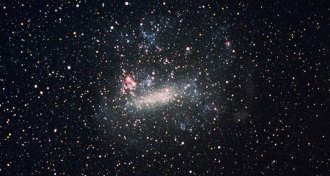 Astronomy
AstronomyThis white dwarf is hotter than the rest
A new record holder for hottest white dwarf sizzles at about 250,000˚ Celsius.
-
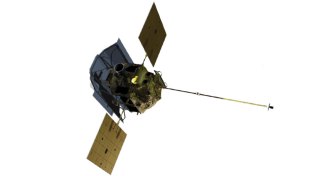 Astronomy
AstronomyAstronomical milestones of 2015
The New Horizons mission to Pluto was the No. 1 science story of the year. Here some other notable space missions.
-
 Science & Society
Science & SocietyScience puzzles no longer so puzzling
This year, researchers solved the riddle of mysterious radio bursts, the Erdös discrepancy problem and an elusive acid.
-
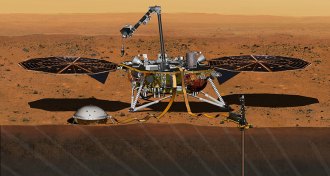 Planetary Science
Planetary ScienceEquipment failure delays Mars mission
A leaky instrument will push back launch of the Mars InSight lander by at least two years.
By Andrew Grant -
 Astronomy
AstronomyEquipment failure pushes back Mars lander mission
The launch of the Mars InSight lander is suspended until at least 2018 because of a faulty seismometer.
By Andrew Grant -
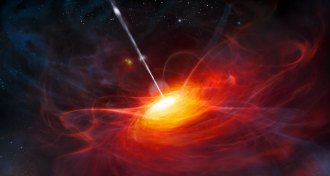 Astronomy
AstronomyNew recipe found for making supermassive black hole
The universe’s first supermassive black holes may have formed directly from gas in colliding galaxies, new simulations suggest.
By Andrew Grant -
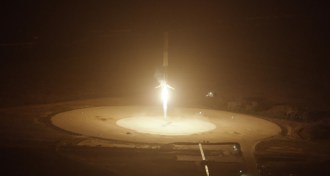 Tech
TechSpaceX rocket sticks its landing
A Falcon 9 rocket section lands after launching a set of satellites during a successful test of SpaceX’s reusable rocket parts.
-
 Tech
TechSpaceX rocket blasts to space and back, sticks the landing
A Falcon 9 rocket section lands after launching a set of satellites during a successful test of SpaceX’s reusable rocket parts.
-
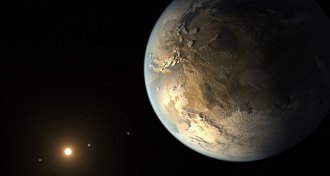 Astronomy
AstronomyExoplanets need right stuff to be habitable
The elemental makeup of a star can reveal whether planets in its solar system could support sustained plate tectonics, a requirement for Earth-like life, researchers propose.
-
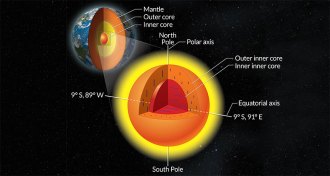 Earth
EarthSolid inner, inner core may be relic of Earth’s earliest days
Earth’s innermost inner core may have formed billions of years earlier than previously thought, shortly after the planet’s accretion.
-
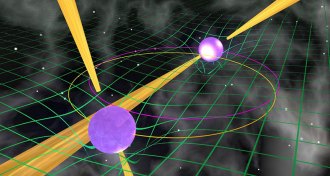 Physics
PhysicsPulsar pair ripples spacetime
A pair of pulsars gives scientists the best evidence so far for gravitational waves, which have yet to be detected directly.
By Andrew Grant -
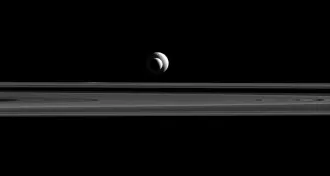 Planetary Science
Planetary ScienceCassini spacecraft preps for one last flyby of Enceladus
December 19 marks the last time the Cassini spacecraft flies in for a close look at the Saturnian moon Enceladus.